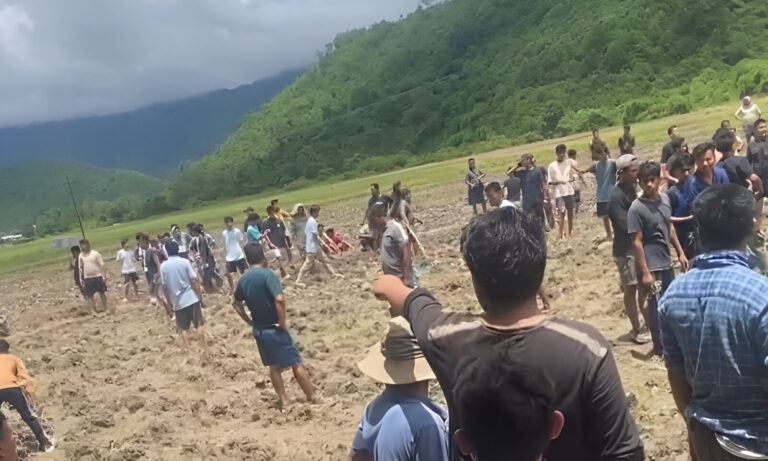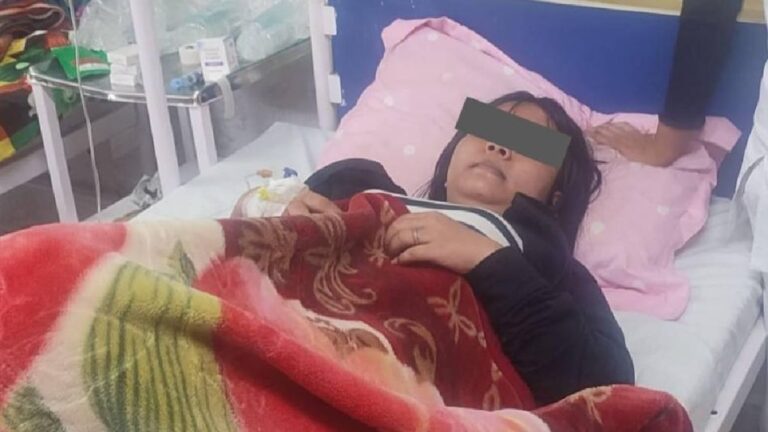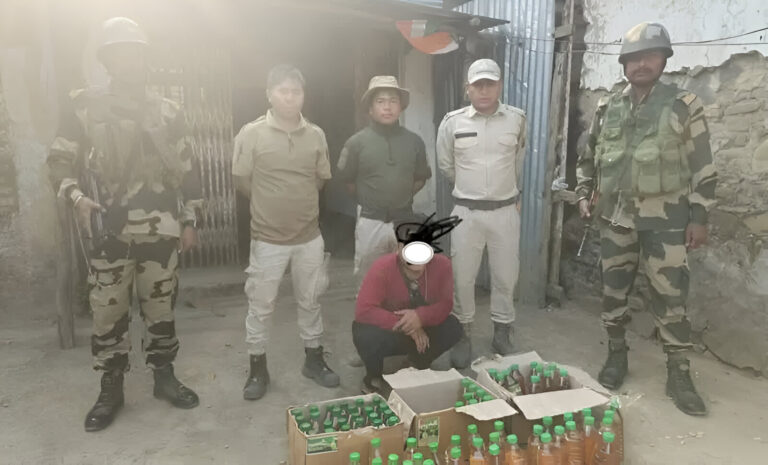Kuki-Zo Council Lifts Indefinite Shutdown in Manipur but Maintains Opposition to Free Movement Policy
In a significant development, the Kuki-Zo Council has lifted its indefinite shutdown in Manipur, allowing stranded trucks to resume movement. However, the council remains steadfast in its opposition to the state’s free movement policy, citing concerns over security and ethnic tensions.
Understanding the Kuki-Zo Council’s Recent Actions in Manipur
Manipur, a state nestled in the northeastern part of India, has been a mosaic of diverse cultures and ethnicities. However, this diversity has also been the root of numerous conflicts, particularly between the Meitei and Kuki-Zo communities. The recent actions of the Kuki-Zo Council, including the imposition and subsequent lifting of an indefinite shutdown, have brought these issues to the forefront.
Backdrop of the Shutdown
The Kuki-Zo Council’s decision to initiate an indefinite shutdown was not made lightly. On March 8, clashes erupted between Kuki-Zo protesters and security forces in Kangpokpi district, leading to the tragic death of a young individual and injuries to several others, including security personnel. This incident was the tipping point for the council, prompting them to call for a shutdown to protest the perceived injustices against their community.
The Ethnic Tensions in Manipur
To fully grasp the gravity of the situation, it’s essential to delve into the historical context of ethnic tensions in Manipur.
- The Meitei Community: Predominantly residing in the Imphal Valley, the Meiteis have been the majority community in Manipur. Their demand for Scheduled Tribe (ST) status has been a contentious issue, leading to apprehensions among the hill tribes about potential loss of opportunities and rights.
- The Kuki-Zo Community: Inhabiting the hilly terrains of Manipur, the Kuki-Zo tribes have their own distinct identity, customs, and traditions. They have often felt marginalized in the political and social landscape of the state.
The 2023–2024 Manipur Violence
The ethnic divide reached a boiling point between 2023 and 2024. On May 3, 2023, violence broke out between the Meitei and Kuki-Zo communities. Within weeks, the clashes resulted in over 100 fatalities and displaced approximately 60,000 individuals. The violence led to a complete segregation of the communities, with Kuki-Zo people fleeing the Imphal Valley and Meiteis vacating the Kuki-Zo-dominated hill districts.
Role of the Indigenous Tribal Leaders’ Forum (ITLF)
During this tumultuous period, the Indigenous Tribal Leaders’ Forum (ITLF) emerged as a significant voice for the Kuki-Zo community. They highlighted grievances, called for President’s Rule in the state, and demanded a separate administration for the Kuki-Zo tribes. The ITLF’s actions underscored the deep-seated mistrust and the desire for autonomy among the tribal communities.
The Free Movement Policy Controversy
One of the primary reasons the Kuki-Zo Council remains opposed to the state’s free movement policy is the potential threat it poses to their security. The policy allows unrestricted movement across certain areas, which the council believes could lead to further ethnic clashes and jeopardize the safety of their community members.
Lifting of the Shutdown
After days of halted transportation and economic activities, the Kuki-Zo Council decided to lift the indefinite shutdown. This decision was influenced by assurances from the state government to address their concerns and the pressing need to allow essential goods to reach various parts of the state. The resumption of truck movements has brought a sigh of relief to many, especially those who were stranded or awaiting essential supplies.
The Road Ahead
While the lifting of the shutdown is a positive step towards normalcy, the underlying issues remain unresolved. The state’s free movement policy continues to be a bone of contention. For lasting peace, it’s imperative for the government to engage in meaningful dialogues with all stakeholders, address the root causes of the ethnic tensions, and ensure that policies are inclusive and considerate of the concerns of all communities.
Conclusion
The recent events in Manipur serve as a stark reminder of the fragile nature of peace in regions with diverse ethnic compositions. The Kuki-Zo Council’s actions reflect the deep-seated fears and aspirations of their community. It is now up to the state and central governments to bridge these divides, foster mutual trust, and pave the way for a harmonious coexistence in Manipur.
FAQs
- What led to the Kuki-Zo Council’s indefinite shutdown in Manipur?
- The shutdown was initiated following clashes between Kuki-Zo protesters and security forces in Kangpokpi district on March 8, resulting in the death of a youth and injuries to several others.
- Why is the Kuki-Zo Council opposed to the free movement policy?
- The council fears that the policy could lead to security threats and exacerbate ethnic tensions, putting their community at risk.
- What were the consequences of the 2023–2024 Manipur violence?
- The violence led to over 100 deaths and displaced around 60,000 people, causing a significant ethnic divide in the state.
- How did the shutdown affect daily life in Manipur?
- The shutdown halted transportation and economic activities, leading to shortages of essential goods and stranding of trucks.
- What steps are being taken to address the concerns of the Kuki-Zo community?
- The state government has assured the council of addressing their concerns, and dialogues are expected to ensure policies are inclusive and considerate of all communities.



